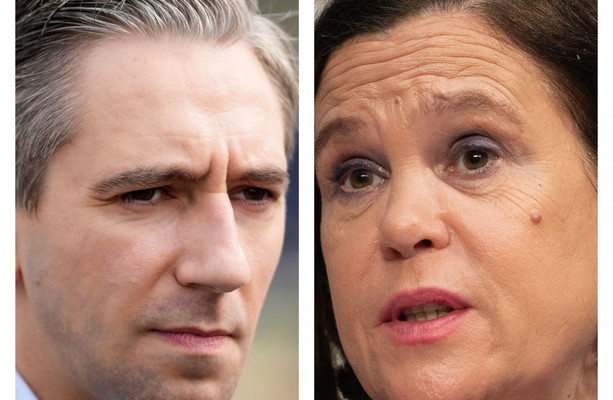Headline: Government Postpones Occupied Territories Bill, Sparks Controversy
The government’s decision to delay the Occupied Territories Bill has ignited fierce debate across the political landscape, with many Opposition parties condemning the move as "disgraceful." As the clock ticks down to the upcoming general election, tensions surrounding this legislation—and its implications for international relations—are at their peak. Prominent figures in government and the Opposition are urging that politics should not interfere with matters of principle and human rights.
The Delayed Bill: What’s at Stake?
The Occupied Territories Bill, primarily focused on regulating Israeli imports linked to settlement activities, is set to be pushed to the next Dáil session. This decision coincides with the running-up phase of Ireland’s general election, and many are questioning the timing and underlying motives. Simon Harris, the Minister for Justice, stressed the urgency of focusing on essential issues rather than engaging in political maneuvering.
“The facts are clear: we are days away from the general election commencing. It would be irresponsible to let political dynamics derail legislation that impacts our foreign relations and human rights approach,” Harris stated.
Opposition’s Response: A Call for Action
Opposition parties have not held back in their criticism of the government’s stance. They highlight concerns about the timing of the postponement, arguing that the conversation around the Occupied Territories Bill is critical in a world increasingly concerned with ethical imports and international law.
Fianna Fáil and Sinn Féin have both offered to facilitate discussions and streamline the passage of the bill before the election. “The importance of this bill cannot be understated; it addresses fundamental human rights issues that deserve immediate attention,” said a spokesperson for Sinn Féin.
Political Implications and Public Sentiment
With the general election looming, many citizens are paying close attention to how their representatives align on such poignant issues. The decision to delay the Occupied Territories Bill may serve as a litmus test for voters who prioritize ethical foreign policy. Polling indicates that a significant segment of the electorate is in favor of decisive action regarding international human rights.
Interestingly, this situation resonates beyond politics, potentially influencing businesses and sectors linked to technology and global trade. Tech companies that engage in import-export operations may soon face regulatory challenges as discussions about ethical practices gain prominence. A shift in public sentiment could influence software solutions aimed at ensuring compliance with international laws.
The Broader Context: Technology and Ethics in Focus
The intersection of technology and ethical practices is emerging as a dynamic realm of discussion. As businesses navigate this landscape, they must be prepared for impending regulatory changes. Companies specializing in import compliance software or ethical sourcing may find new opportunities, as pressure mounts for transparency and accountability in trade practices.
Experts in technology ethics posit that legislative actions, such as the Occupied Territories Bill, could create a ripple effect. “What we’re witnessing is not just a political debate; it’s a societal shift towards accountability in technology and trade,” said Dr. Emma O’Reilly, an advocate for technology ethics and advisor to emerging tech firms.
Moving Forward: A Call for Dialogue
In light of the postponed Occupied Territories Bill, engagement among stakeholders—including government, businesses, and civil society—will be essential for shaping a path forward. Engaging these parties in dialogue could not only steer the legislation itself but also foster a broader understanding of the implications of ethical practices in business.
- For Businesses: Adapt and strategize regarding compliance practices.
- For Voters: Stay engaged in conversations about foreign policy and its local impacts.
- For Politicians: Consider the long-term repercussions of prioritizing political gains over meaningful legislation.
As citizens and technology enthusiasts navigate their opinions regarding the Occupied Territories Bill, the emphasis should remain on dialoguing about its potential impact.
What are your thoughts on the government’s decision to delay the Occupied Territories Bill? Do you believe that foreign policy issues should take precedence over political strategies? Share your opinions in the comment section below and keep the conversation going!
For deeper insights on technology and ethical trade practices, visit TechCrunch, The Verge, or Wired. For more local news updates relevant to this topic, check out Shorty-News.


![[오늘과 내일/김승련]The North Korean government, which neglected explanations, must reduce arms donations | Dong-A Ilbo [오늘과 내일/김승련]The North Korean government, which neglected explanations, must reduce arms donations | Dong-A Ilbo](https://dimg.donga.com/a/180/101/95/2/wps/NEWS/IMAGE/2024/11/01/130345941.1.png)